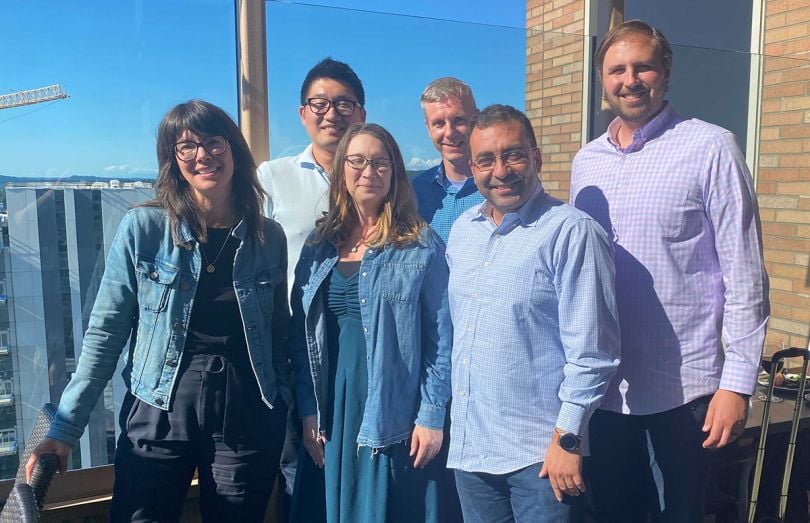Logging into work can at times feel like merging onto a teeming highway of calendar invites, work messages and other one-off communication that leaves you ricocheting between different tasks, diverting attention from what’s essential to your role.
And particularly for engineers and designers, getting into the flow at a comfortable speed requires effectively cutting through all of that noisy traffic. Of course, there are personal measures employees can take to wrangle potentially unwieldy calendars. But the results of individual action can fizzle if they’re incongruent with larger organizational culture. Sometimes it takes broader buy-in behind a certain initiative for individuals to feel like they can dive into the reason they’re logging on to begin with.
For Coinme, opting to go fully remote has meant incorporating and prioritizing “deep work” in order to empower employees to thoughtfully and thoroughly engage with “important, move-the-needle projects,” said VP of Marketing Julie Ingle. Originally put forth by author and computer science professor Cal Newport, the concept refers to attaining dialed-in focus on “cognitively demanding work” — versus what Newport calls less complex, more straightforward “shallow work” — without diverting one’s attention.
“It is a state achieved by blocking off chunks of time to focus intensely on a single task,” Ingle said. “The practice strengthens one’s ability to learn complex things quickly and optimize output, thereby increasing satisfaction and fulfillment.”
Accordingly, the company instituted Deep Work Wednesdays so that team members are freed up to dive into crucial tasks, protecting calendars from meetings during those hours.
The results? Ingle said that a focus on deep work has aided her own productivity, while also noting that it’s helped the team push big-ticket projects across the finish line.
“Through a deep work practice, the Coinme marketing team produced and launched one of our most significant educational initiatives, Cryptoliteracy.org. It was an ambitious project to benchmark and measure,” Ingle said.
Below, Ingle shares with Built In Seattle how Coinme has championed the idea across the company, the benefits reaped from doing so and her own tips on how other leaders might take a similar approach.
About CoinMe
Why did Coinme decide to make deep work a core part of the employee experience?
Coinme’s move to a remote-first structure required us to rethink how we create an engaging, energizing, fulfilling work environment and company culture. To combat meeting fatigue and improve productivity and satisfaction, one of the first decisions we made as a company was to make the deep work philosophy a part of our company culture.
Deep work is essential because it encourages teams to focus on what is important, learn new skills and apply them to increase productivity. Deep work is especially vital for remote workers, as it helps to maintain a healthy work-life balance and avoid the burnout that’s becoming more common on remote teams.

Tell us more about Deep Work Wednesdays. How do they work in practice?
Coinme instituted Deep Work Wednesdays as a companywide initiative to encourage the entire organization to clear their calendars of distractions and focus intensely on important, move-the-needle projects. By sanctioning this weekly ritual as part of our company culture, we prioritized and ritualized it so everyone can focus deeply on projects that matter most.
To succeed in deep work, it’s crucial to clear distractions during those focused time blocks: Close your inbox and turn off Slack, social media and text notifications. It takes a few minutes to get into the groove of a new project, but once you do, it unlocks a state of hyperfocus and flow that is truly fulfilling.
“It takes a few minutes to get into the groove of a new project, but once you do, it unlocks a state of hyperfocus and flow that is truly fulfilling.”
As a leader on your own team, how do you empower your team members to have time and space for deep work?
Executing deep work requires practice and training, just like building a muscle, and starts with planning, time blocking and goal setting. As a manager, I try to facilitate deep work for my team by structuring weekly team meetings and 1:1s on Mondays and Tuesdays, so there’s clarity on the critical projects to block time for Deep Work Wednesdays. In addition, I tend to time block projects in 90-minute increments for my deep work practice.
How have you personally benefited from efforts and initiatives to encourage deep work?
I’m much more productive through the practice of deep work. Important, strategic work will take hours of concentrated effort and focus. But it helps set the right course to accomplish my career goals and our company goals.
What has been challenging about promoting deep work? How has Coinme overcome those challenges?
Without a doubt, meeting creep is the biggest challenge to promoting and protecting our Deep Work Wednesdays practice. Inevitably, meetings will start to bleed over into Wednesdays, so managers and the leadership team have to defend the practice. Managers now place calendar holds on their team’s schedules to remind and protect the practice.
Lastly, what advice would you give to other companies or leaders looking to encourage deep work within their respective workplaces?
For deep work to be successful, it has to be embraced and cultivated by the leaders within an organization. It has to be a cultural movement, not just a personal preference. It won’t successfully take hold unless leadership supports it.





